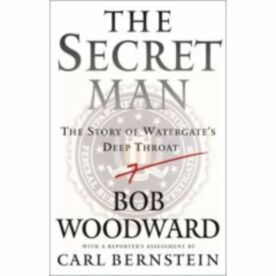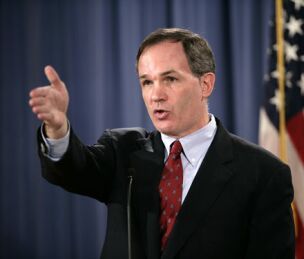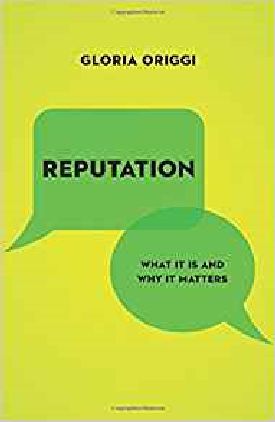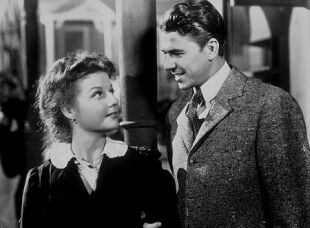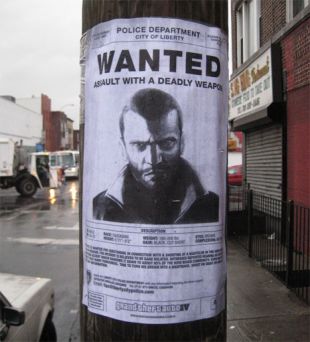Rosebud-Hunting
From The New York SunI met Bob Woodward once. Not to brag or anything. I stood as near to him as he did to Mark “Deep Throat” Felt in the famous parking garage — or to his good friend Robert Redford. Not to drop names. And I engaged him in conversation. Well, “engaged” is a bit of an overstatement.
You know how sometimes at a party you’ll be talking to someone who will notice someone else who’s more important, cut you off in mid-flow, and make a beeline to the more important person? Well, when I met Bob Woodward, he went one better than that. Instead of cutting me off, he interrupted himself to get to the More Important Person.
You really can’t blame the guy. He’s a reporter. He talks to people for a living. And a journalist at his stratospheric level must know in a millisecond if you can tell him anything that will be useful to him or not. Obviously, I couldn’t, and the MIP could.
But Bob Woodward is not just a reporter. He’s a hero as well. That’s why an article about him in the Style section of the Washington Post last week, written as a curtain-raiser for his new book, The Secret Man: The Story of Watergate’s Deep Throat (Simon & Schuster, 249 pages, $23), sought out for him, as he would for any other celebrity, a humanizing detail.
The author of the article, Bob Thompson — call him Bob 2 — says that Mr. Woodward has been “my colleague for 20 years. … But we don’t really know each other.” Therefore, presumably, he had to scour the new book to discover a pertinent fact about Bob 1 the man — namely, that he once got drunk.
That’s it. Mr. Thompson even leaves out the part where Mr. Woodward, who had had “maybe even six or seven” martinis at the party celebrating his departure from the Navy, threw up in the backseat of his commanding officer’s car. For Bob 2, the drunken episode itself is “compelling” and “hints at an inner Woodward we’ve never known.”
Does it really? If so, he neglects to take up the hint and tell us anything more about this inner self. It is enough for him simply to assure us of its existence. Maybe it’s better to know no more.
Oddly, that’s just how Bob 1 approaches Mr. Felt in the book.
There he tells us that when, as a young naval officer, he originally met Mr. Felt, the latter had told him of his first job in Washington, D.C., with the Federal Trade Commission. He had been asked to decide whether a manufacturer of toilet paper with the brand name of the Red Cross had an unfair competitive advantage over other toilet papers. The task had defeated him.
This story was told as career advice. “Don’t get caught in your own personal equivalent of the Federal Trade Commission toilet paper investigation.”
Mr. Woodward writes:
It seemed like a nearly perfect metaphor for the pitfalls I might face — in some ways, as I recall, a revelation. I was thankful for the advice. Even now, decades later, I consider his advice a kind of “Rosebud,” the elusive X-factor in someone’s life that explains everything. The Rosebud here was the realization that I was free to choose. The Navy was the opposite, and I had to be careful that I didn’t sign up for someone’s plan for my life.
That passage is a good example of what an awful writer Mr. Woodward is. Mr. Felt’s words were not a “metaphor” at all. His own word “pitfalls” is — and a hackneyed one. “Rosebud” is neither an “X-factor” nor a “realization” but a sled in Orson Welles’s film Citizen Kane, not mentioned by Mr. Woodward. Nor did it “explain everything” — as if anything ever could. The word “here” must refer to Mr. Felt but in fact refers to Mr. Woodward himself, for whom the Navy, whatever else it was, could hardly have been “the opposite” of either “Rosebud” or that “realization.”
Actually, as Rosebuds go, Mr. Woodward’s fatally intertwined rhetorical pair, the toilet paper investigation and the “realization” of free choice, makes Bob 2’s account of Bob 1’s drunken crawl across a Pentagon parking lot look positively Wellesian.
But the reader of The Secret Man is not meant to care. Its point is the eternal glamour of journalistic Rosebud-hunting itself. Only figures of historical importance can have Rosebuds, for why bother to “explain everything” about a nonentity? And the explainers, especially when they fail, can be as important as the explained.
Mr. Woodward’s book is a plodding attempt to sell both himself and Mr. Felt as figures of this kind of world historical importance.
Back when he was reporting Watergate, says Mr. Woodward, “there was no time to ask our sources, Why are you talking? Do you have an ax to grind? Why don’t you blow the whistle publicly …?” But, not having thought to ask any of those questions in the 30 years since either, he has waited until this book and Mr. Felt’s retreat into the memorial mists of senile dementia to ask them — in short, until they can never be answered.
That’s what gives him the opportunity to record, in excruciating detail, his “interview for the record, for history” with Mr. Felt in 2000. Reading it is like watching an episode of sickening violence. “Make it stop!” you want to say. “Make it stop!” But Mr. Woodward is pitiless. Again and again he asks Mr. Felt if he remembers something from the Watergate era, and again and again he records with grim satisfaction that Mr. Felt does not remember.
Thus the mystery of Mr. Felt’s Rosebud and with it his — and Mr. Woodward’s own — historical importance will remain forever intact. Mr. Woodward didn’t have to wait for him to die after all.
I could sympathize with Bob 2’s desperate attempt to find a humanizing detail, but I would have picked a different one. It comes as Mr. Woodward discusses the propensity of Deep Throat for mystification. Mr. Felt was forever
suggesting a still wide chasm between his knowledge and mine. That had always been the basis of our relationship: He knew and I didn’t. I would flounder, fall dangerously off course, and he would right the ship of knowledge. And apparently it would always be such.
Clang! That word “such,” rather than the more conventional “so,” is the authentic Woodward touch, marking this as his own Rosebud. The inner-Bob is a bubbling cauldron of unspoken resentment against his more important, more powerful or more famous sources for knowing more than he does — and determination to prove his own importance and title to fame by righting that injustice, just as he did with poor ga-ga Mr. Felt.
Well, he’s got his wish. Thanks to Watergate and Mr Felt, there aren’t many rooms in the nation’s capital today where he wouldn’t be the Most Important Person in them.
Discover more from James Bowman
Subscribe to get the latest posts to your email.

